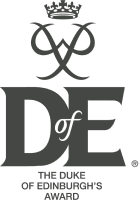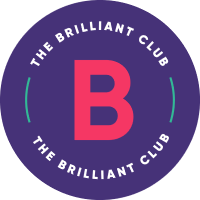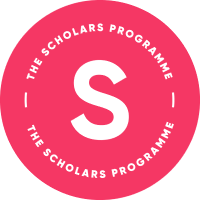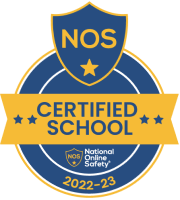This subject is part of the Faculty of Languages and Communication.
Our Head of Faculty is:
Ms H. Eames heames@tcat.school
Our subject teachers and email addresses are:
Mrs J Fisher jfisher@tcat.school
Miss B. Godsall bgodsall@tcat.school
Mrs T Hopwood thopwood@tcat.school
Mr W. Huntzinger whuntzinger@tcat.school
Our subject intent
Is to ensure that all our students develop effective written and spoken communication, as well as developing a confidence and love of reading, as these skills are the foundation for all our learning. The ability to communicate effectively, confidently and with clarity is crucial in school, but also in becoming an effective participant in our wider society with skills of communication being key to accessing the world of work and in navigating adult life. The importance of using fluent written and spoken English is critical and it is essential that we develop these skills in our students through an effective English curriculum.
Curriculum Subject Offer
Year 7 English
Subject intent
In year 7 you will learn about both Language elements (descriptive writing based on the Island transition scheme; autobiographical writing; developing creative writing skills as part of our Theme Park project) and Literature elements (reading the novella Animal Farm and analysing the writer’s language choices; an Introduction to Shakespeare). This is designed to give you a solid start to the rest of the key English skills you will develop throughout the rest of KS3 and on into KS4.
Topic Breakdown
|
|
Half term 1 |
Half term 2 |
|
Autumn |
Transition – The Island | Autobiography |
|
Spring |
Animal Farm | Animal Farm |
|
Summer |
Introduction to Shakespeare | Theme Park |
You will be assessed at the end of each topic with an assessment linked to the skills you’ve been developing each half term.
English full Scheme of Work - Year 7
Year 8 English
Subject intent
Moving into Year 8, you begin by looking at a range of modern poetry related to the theme of the Natural World. You spend time learning to identify and comment on a range of different language techniques and their effect on the reader, before moving on to think creatively and write persuasive speeches and letters based on the poetry and the set text Of Mice and Men. In the second half of the year, you work on your creative writing: you focus on the themes of adventure and science fiction stories.
Topic Breakdown
|
Half term 1 |
Half term 2 |
|
|
Autumn |
The Natural World – poetry | The Natural World – poetry |
|
Spring |
Of Mice and Men – post 1914 prose text | Of Mice and Men – post 1914 prose text |
|
Summer |
Creative writing – Adventure Stories | Creative writing – Science Fiction |
You will be assessed at the end of each topic with an assessment linked to the skills you’ve been developing each half term.
English full Scheme of Work - Year 8
Year 9 English
Subject intent
Year 9 starts with looking at Gothic ghost stories before moving on to reading and studying The Strange Case of Dr Jekyll and Mr Hyde. This sets you up for the English Literature GCSE, as after Christmas you study a range of poetry: Year 9 work on the EDUQAS GCSE Poetry Anthology – 15 poems that will feature in your final English Literature exam. Finally, you start the first of your Literature GCSE set texts. This will either be The Woman in Black or An Inspector Calls.
Topic Breakdown
|
|
Half term 1 |
Half term 2 |
|
Autumn |
Creative writing – Gothic ghost stories | The Strange Case of Dr Jekyll and Mr Hyde |
|
Spring |
Poetry Anthology | Poetry Anthology |
|
Summer |
Poetry Anthology | Post-1914 text: either The Woman in Black or An Inspector Calls |
You will be assessed at the end of each topic with an assessment linked to the skills you’ve been developing each half term.
English full Scheme of Work - Year 9
Year 10 English
Subject intent
During Year 10, similar to Year 9, you will continue working on your EDUQAS GCSE Literature course.
At the start of Year 10, you begin your first in-depth study of a Shakespeare play: either Macbeth or Romeo and Juliet. The second Literature text you study during Year 10 is a 19th Century novel. Dependent on the class, you will read, study and analyse either A Christmas Carol by Charles Dickens, or The War of the Worlds by H.G. Wells.
.
Topic Breakdown
|
LITERATURE |
Half term 1 |
Half term 2 |
|
Autumn |
Shakespeare | Shakespeare |
|
Spring |
19th Century Novel | 19th Century Novel |
|
Summer |
Revision and exam | Language – Spoken Language/speech writing |
You will be assessed at the end of each topic with an assessment linked to the skills you’ve been developing each half term.
English full Scheme of Work - Year 10
Year 11 English
Subject intent
In Year 11 you will exclusively study English Language, and you will receive 4 hours of English lessons per week.
For the English Language course, Year 11 starts with the 20th Century Fiction Reading Component of the EDUQAS English Language exam and from then you will learn how to craft imaginative and well-structured creative writing. The final element of the course is the Component 2 Reading Section which looks at 19th and 21st Century Non-Fiction texts and a range of transactional writing elements such as article and letter writing.
Topic Breakdown
|
LANGUAGE |
Half term 1 |
Half term 2 |
|
Autumn |
Component 1 Section A Reading 20th Century Fiction and Creative Writing | Component 2 Section B Reading 19th and 21st Century Non-Fiction |
|
Spring |
Component 2 Section B Transactional Writing – newspaper and magazine articles, reviews, guides, formal reports, letter writing | Revision |
|
Summer |
Revision/Exams | Exams |
You will be assessed at the end of each topic with an assessment linked to the skills you’ve been developing each half term.
English full Scheme of Work - Year 11
Within each subject we have our own specific personalised marking and feeback policy.
|
English and Communications Faculty |
||
|
|
KS3 |
KS4 |
|
Verbal dialogue |
Teachers circulate with purpose, checking pupils’ work, marking if appropriate and collecting information on whole-class strengths, errors, misconceptions, knowledge gaps etc. The teacher adjusts their lesson accordingly. |
Teachers circulate with purpose, checking pupils’ work, marking if appropriate and collecting information on whole-class strengths, errors, misconceptions, knowledge gaps etc. The teacher adjusts their lesson accordingly. |
|
Self/peer assessment |
Written feedback through strengths/targets and annotations. Peer and self-assessment should be completed in blue pen. |
Written feedback through strengths/targets and annotations. Peer and self-assessment should be completed in blue pen. |
|
Whole Class Feedback |
When pupils complete extended pieces of writing, teachers will read through a sample of books from each class they teach and note pupils’ strengths and areas for development. Teachers will then use this information to provide whole class feedback on what pupils are doing well and how pupils can improve their work further. As this type of marking involves the teacher looking at a sample of books, the teacher will use a rotation system to ensure that the books of all pupils are looked at on a regular basis. |
When pupils complete extended pieces of writing, teachers will read through a sample of books from each class they teach and note pupils’ strengths and areas for development. Teachers will then use this information to provide whole class feedback on what pupils are doing well and how pupils can improve their work further. As this type of marking involves the teacher looking at a sample of books, the teacher will use a rotation system to ensure that the books of all pupils are looked at on a regular basis. |
|
Written comments |
Teachers within the department will either: For ENGLISH - 1. Read through the work of all pupils and use a marking code to indicate the strengths of the work and the areas for development. The marking code will be shared with all pupils and pupils will be given precise instruction about how to improve their work. OR MFL - 2. Read through the work of all pupils and write a strength comment and target comment at the end of the piece of work. SPAG Teachers will identify where pupils make errors in their spelling, punctuation and grammar in any two paragraphs of the teacher’s choice, and pupils will be given time in lessons to make corrections (by circling errors where SPAG mistakes appear). If several pupils in a class are making the same spelling, punctuation or grammar error then the teacher will address this with the class. |
Teachers within the department will either: 1. Read through the work of all pupils and use a marking code to indicate the strengths of the work and the areas for development. The marking code will be shared with all pupils and pupils will be given precise instruction about how to improve their work. OR 2. Read through the work of all pupils and write a strength comment and target comment at the end of the piece of work. SPAG Teachers will identify where pupils make errors in their spelling, punctuation and grammar and pupils will be given time in lessons to make corrections (by circling errors where SPAG mistakes appear). If several pupils in a class are making the same spelling, punctuation or grammar error then the teacher will address this with the class. |
|
Frequency of feedback |
Live feedback and responsive teaching will take place in most lessons where pupils have been asked to complete extended pieces of writing. * Whole-class feedback will take place once a week for English and once a fortnight for MFL. Peer/self-assessment When deemed to be the most effective method of assessing work produced in lessons Written comments will take place after between 10 and 15 lessons (around twice per term), as appropriate for the pace of the class. This will be the half-termly assessments. *When studying class readers, there may be several lessons where pupils do not write extensively. Instead lesson time will be used to: read and discuss the text; annotate the text; make notes about the text; complete short comprehension activities and quizzes related to the text. |
Live feedback and responsive teaching will take place in most lessons where pupils have been asked to complete extended pieces of writing. * Whole-class feedback will take place once a week for English and once a fortnight for MFL. Peer/self-assessment When deemed to be the most effective method of assessing work produced in lessons Written comments will take place after between 10 and 15 lessons (around twice per term), as appropriate for the pace of the class. This will be the half-termly assessments. *When studying class readers, there may be several lessons where pupils do not write extensively. Instead lesson time will be used to: read and discuss the text; annotate the text; make notes about the text; complete short comprehension activities and quizzes related to the text. |
|
Response to feedback |
When directed after marking/whole class feedback, pupils will be expected to make a response in blue pen. In some instances, pupils will be expected to put the title DIRT and either re-draft an entire piece of work or a section of the piece of work according to the teacher’s instructions. In other instances, pupils will be expected to apply their feedback to a different task under the title DIRT. This would be done in blue pen. In further instances, pupils may be asked to answer questions posed by the teacher. Responses to spelling mistakes include writing out misspelled words three times and listening to explicit teaching of spelling (etymology etc.). |
When directed after marking/whole class feedback, pupils will be expected to make a response in blue pen. In some instances, pupils will be expected to put the title DIRT and either re-draft an entire piece of work or a section of the piece of work according to the teacher’s instructions. In other instances, pupils will be expected to apply their feedback to a different task under the title DIRT. This would be done in blue pen. In further instances, pupils may be asked to answer questions posed by the teacher. Responses to spelling mistakes include writing out misspelled words three times and listening to explicit teaching of spelling (etymology etc.). |
|
Summative assessment |
1 x formal assessment each half term. A piece of extended writing which is marked using official GCSE mark schemes. Band boundaries are applied to the assessments once judged. |
1 x formal assessment each half term. A piece of extended writing which is marked using official GCSE mark schemes. Band boundaries are applied to the assessments once judged. |






